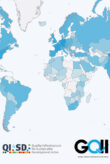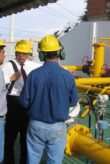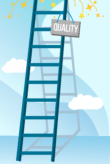Cooperation project is gaining speed – a 9-week deputation to the International Renewable Energy Agency (IRENA)
The advancement of renewable energies is not only a focus of PTB’s work – the IRENA organization is also intensely involved with this topic. A solid foundation for cooperation: in May 2016, IRENA’s Innovation and Technology Centre and PTB’s Technical Cooperation department agreed to intensify their joint work. Because of this, I was able to work at IRENA from October to December 2016 and contribute to the work on the significance of quality infrastructure for the advancement of renewable energies.
Which tasks does IRENA perform? IRENA is an international governmental organization and supports its Member States in the advancement of renewable energies. It is a central service provider for the exchange of knowledge, technology and political advising. Hereby, IRENA is committed to the continuing development and use of renewable energies, including biological, geothermic, hydro, marine, solar and wind energy. The goal and vision is a world that is less and less dependent on fossil and carbon-based energy resources and to provide sustainable development and access to clean energy.
One mission of IRENA is to communicate a better understanding of the relationship between a functioning quality infrastructure and the advancement of renewable energies. As a part of that, I got involved in the current standardization efforts in wind power technology. I paid particular attention to the comparatively new field of offshore wind technology: Offshore wind energy means wind energy that is obtained off the coast (instead of on land). The standardization efforts for offshore wind power stand out because standards that are already available need to be adjusted to the ambient environment off the coast. This applies, for example, to standards that are used onshore in wind technology for turbines or offshore in the oil industry for supporting structures. The turbines must be capable of handling stronger pressure at sea and therefore the existing standards for wind power turbines require extensive revision. In the case of offshore wind parks, different hazards threaten humans and the environment and, therefore, the standardizations for worker and environmental protection must also be adjusted accordingly. Poor standardization bears the risk of turbines producing less energy than is needed to cover the costs of running a wind park or can lead to danger for workers and fitters.
By maintaining personal and professional contacts and making new ones during my stay, we were able to reach a good understanding of the other organization’s work. IRENA would like to broaden its portfolio of quality infrastructure support for renewable energies – together with PTB.
Link to IRENA http://www.irena.org








